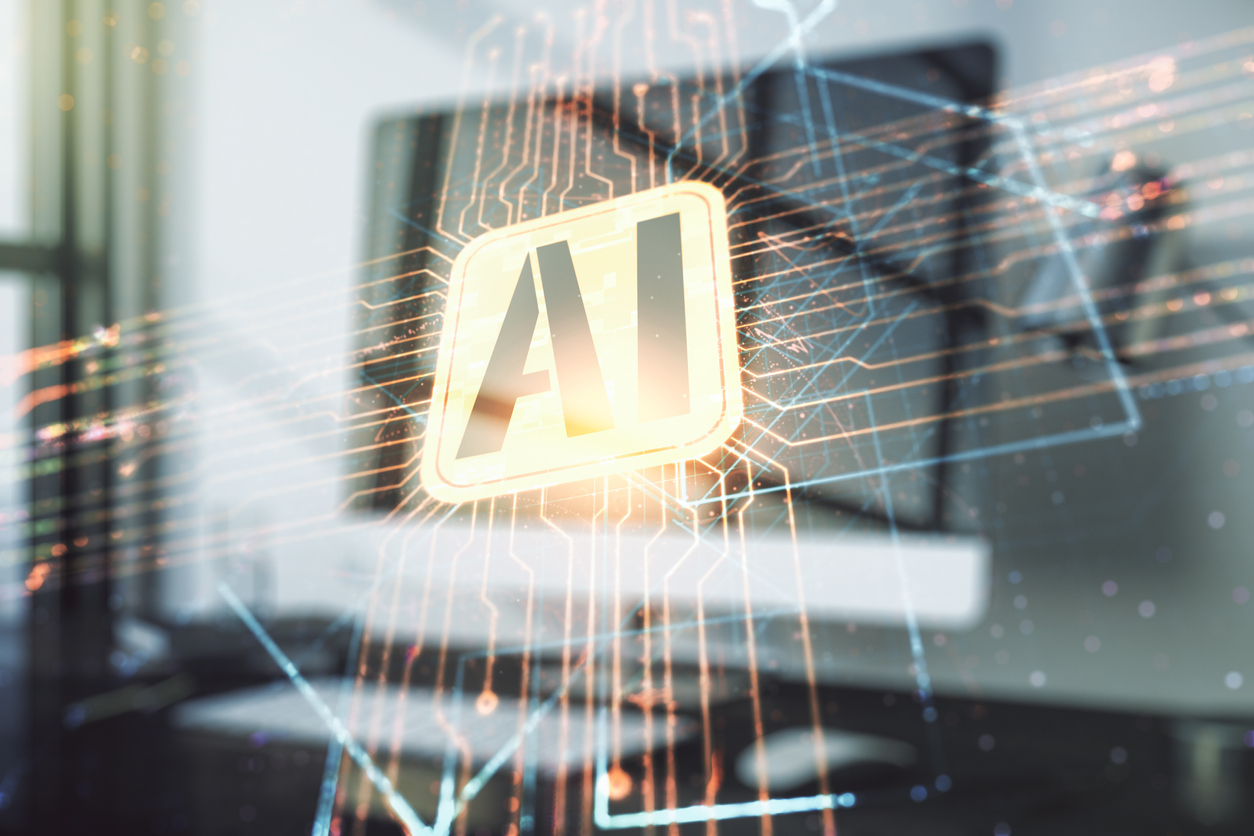Professional content writer and branding aficionado Annie Button shares the latest AI trends for business with CEO Today.
The business world is constantly evolving and companies need to adopt modern methods to match or better their competitors. This brings us nicely on to artificial intelligence (AI), which is a solution that uses computers to mimic the human brain’s ability to solve problems and make decisions.
It uses science and engineering to create intelligent machines and computer programs to copy human thinking but without the limits of biology. According to the December 2021 survey by global management consultants, McKinsey & Company, 56% of organisations have adopted AI in at least one function (up from 50% in 2020).
Examples of everyday artificial intelligence include navigation apps, facial recognition, smart assistants and autonomous vehicles. While these are great for the average consumer, they aren’t exactly industry-focused so let’s look at the latest AI trends for business.
What is AI for business?
In the past, artificial intelligence was seen as something that could replace humans and in some far-fetched movies, turn evil and try to take over the world. While the reality of The Terminator movie franchise hasn’t come to be, yet, AI is alive and kicking in today’s business landscape.
Rather than replacing human intelligence, however, AI is used as a supplemental and supporting tool. Its best use is in processing the swathes of data that businesses must gather where AI significantly outperforms the human brain.
To use Amazon as an example, the corporation uses AI to forecast customer demand, optimise delivery routes, assess product availability and personalise deliveries all to maximise its one-day delivery service. Throw in the ability to make decisions by itself rather than rely on human input to assist it, and AI is like using a more sophisticated form of software.
Artificial intelligence condenses and streamlines processes which ultimately save businesses both time and money. Its main implementations in business are:
- machine learning
- cybersecurity
- internet and data research,
- and acting as digital assistants.
QA and inspection will continue to develop
Companies in the manufacturing or logistics industries rely on their quality assurance and inspection teams to deliver the best possible products to customers. Artificial intelligence in inspection has come on leaps and bounds already in its short time since being implemented.
Typically, a production run at a factory uses AI cameras to pick up defects. This would have been left to a human traditionally, but AI allows for the process to be sped up significantly. Companies are continuing to invest resources in computer vision to assist with their tasks.
Using AI for inspection purposes is rapidly growing thanks to the increased competency of object detection in video frames. Human intervention was deemed essential in years gone by but now we are seeing AI inspecting for defects on production lines, mechanical and car body defects, baggage screening and nuclear power station inspections.
No-code and low-code AI
The idea of the average person engaging and using AI might have seemed like a far-fetched idea in the past. Computer programming and coding has long seemed just a bit too much on the technical side for most people. However, thanks to the development and prominence of no-code or low-code AI, more companies and industries can embrace AI applications.
Low-code, which requires minimal coding, and no-code, which requires none, is helping to drive the cost of implementing AI down for businesses. There is a huge demand for more and more business applications which is putting pressure on IT professionals to meet both the demand and high standards required by clients. Unfortunately, it’s estimated that around 84% of digital transformations fail, despite huge investment from companies.
Removing cost barriers
Cost is typically the main reason for the failure as it’s expensive to hire someone to create bespoke software for a company. Bespoke AI solutions can cost from $6,000 to $300,000. These AI platforms are now enabling small businesses to use the same powerful technologies that were previously reserved for large corporations.
They reduce the barrier to entry as the AI program doesn’t have to be built from scratch. Instead, they save about 90% of the time it takes to create AI software, resulting in lower costs which benefit businesses through its automation feature.
Finally, no-code AI platforms are simple to use, commonly using simple drag and drop functions. While the AI can’t be tailored exactly to each business with low-code and no-code platforms, they introduce software solutions that would otherwise be out of reach for small and midsize companies.
Artificial Intelligence for SEO?
Search engine optimisation (SEO) is now a critical part of a company’s budget as it’s the best way for them to get noticed online. Research from Global Web Index (GWI) reveals that the ‘typical’ global internet user now spends almost 7 hours per day using the internet across all devices.
With so many people browsing the internet and searching for content, small and large businesses are missing out if they don’t use any form of SEO. Perhaps more than most other markets, search engine optimisation is constantly adapting thanks to Google’s ability to change its algorithms.
The latest AI trend for SEO companies to consider is the multitask unified model (MUM) which is likely to change internet search to become more like a smart personal assistant.
Rather than seeking out help from Google, the tech giant will be proactively looking for users it can help by finding solutions to complicated problems on the internet. MUM is expected to use natural language processing while combining multiple searches to create one single comprehensive and ultimately beneficial answer for the user.
Chatbots
Customer service remains as important in today’s world as it ever was, and you could argue it’s even more important thanks to the power of social media. A customer who receives bad service from a company can use their online voice to air their grievances by leaving a bad review. Their digital complaints are a modern form of word of mouth and 86% of people think twice about doing business with a company with negative online reviews. Online reviews are important for a company's reputation and they are something to shout about if customers enjoy the work you do or the service you provide.
AI plays its part in helping companies excel at customer service thanks to the deployment of chatbots on their website. These chatbots offer a way to provide 24/7 engagement with customers, answer questions and interact with customers more effectively.
Given that search engines are constantly looking for ways to bring the best possible results to users, chatbots are likely to become part of that package. Companies failing to create or use a chatbot on their website could find themselves failing to meet customer expectations and suffering in search rankings.










